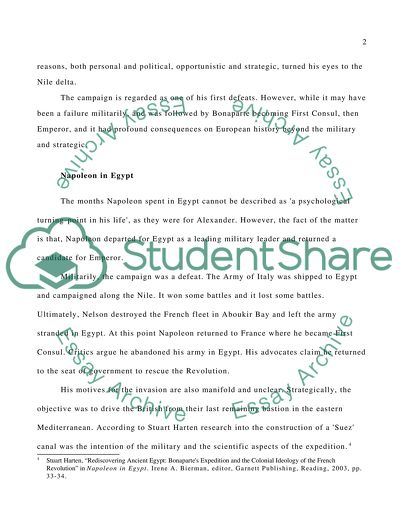Cite this document
(Napoleon in Egypt Scholarship Essay Example | Topics and Well Written Essays - 2000 words, n.d.)
Napoleon in Egypt Scholarship Essay Example | Topics and Well Written Essays - 2000 words. Retrieved from https://studentshare.org/history/1574875-napoleon-in-egypt-and-his-effect-on-education-newspaper-edition-military
Napoleon in Egypt Scholarship Essay Example | Topics and Well Written Essays - 2000 words. Retrieved from https://studentshare.org/history/1574875-napoleon-in-egypt-and-his-effect-on-education-newspaper-edition-military
(Napoleon in Egypt Scholarship Essay Example | Topics and Well Written Essays - 2000 Words)
Napoleon in Egypt Scholarship Essay Example | Topics and Well Written Essays - 2000 Words. https://studentshare.org/history/1574875-napoleon-in-egypt-and-his-effect-on-education-newspaper-edition-military.
Napoleon in Egypt Scholarship Essay Example | Topics and Well Written Essays - 2000 Words. https://studentshare.org/history/1574875-napoleon-in-egypt-and-his-effect-on-education-newspaper-edition-military.
“Napoleon in Egypt Scholarship Essay Example | Topics and Well Written Essays - 2000 Words”. https://studentshare.org/history/1574875-napoleon-in-egypt-and-his-effect-on-education-newspaper-edition-military.


